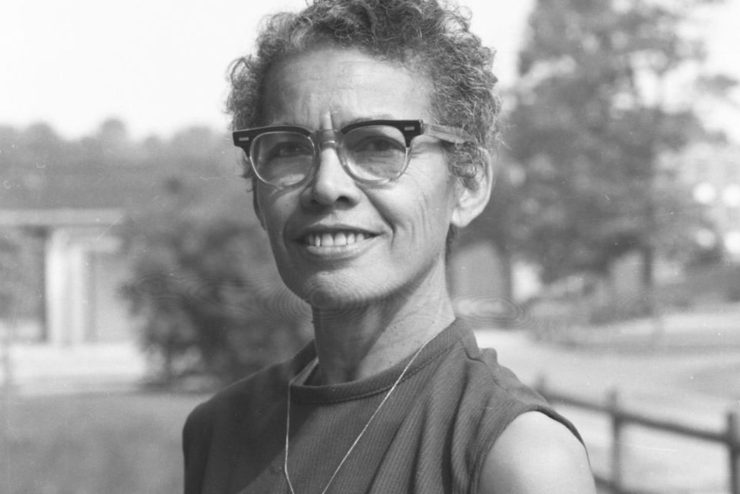Kelly Brown Douglas on Erasing Pauli Murray
Amid attempts to erase the history of the first Black woman ordained in the Episcopal Church, Canon Theologian Kelly Brown Douglas says Murray's historic legacy matters now more than ever.

Murray was a trail-blazing civil rights attorney and, more recently, an icon of the LGBTQIA+ community. She was the first Black woman ordained in The Episcopal Church, here at the Cathedral in 1977 — and not long ago was honored by the U.S. Mint on a commemorative quarter.
From Sojourners:
Murray spent their career fighting for justice on multiple fronts. Murray coined the term “Jane Crow” in 1947 to describe how Black women faced unique forms of discrimination — a concept that would influence critical race theory and Black feminist’s descriptions of intersectionality. When sexism permeated the Civil Rights Movement, Murray responded by helping found the National Organization for Women.
Their pursuit of justice ultimately led Murray to a spiritual calling that shocked many colleagues, Azaransky said. Leaving their secure, tenured position at Brandeis University, Murray entered seminary at a time when women’s ordination remained uncertain. In 1977, she shattered another barrier by becoming the first perceived Black woman ordained as an Episcopal priest.
Now, the Trump Administration is trying to erase some of that history by removing Murray from websites run by the National Park Service, along with other prominent LGBTQIA+ figures like Stonewall heroine Marsha P. Johnson.
The Cathedral’s Canon Theologian, who followed Murray’s footsteps as one of the first Black women ordained in the Episcopal Church, has some thoughts. Again, from Sojourners:
“I know I wouldn’t be here if Pauli Murray hadn’t gone first,” Douglas, the canon theologian at the Washington National Cathedral, said. “Pauli Murray simply wanted to create a world where ‘Pauli Murrays’ could live and thrive and have their being. That means someone who was Black, embodied female, and queer. That was Pauli Murray.”
…
“Our churches should be a sanctuary for the knowledge that is being erased,” Douglas said. “Let’s be a sanctuary for our stories; Pauli Murray should always have a home. Her story should always be at the center of our faith stories, and so we need to preserve that story.”
(Editorial note: there is not universal agreement about whether Murray saw herself as trans or queer; some people use they/them pronouns to refer to Murray; for now, we’re going with she/her pronouns in her capacity, at the time, as the first Black female priest in the Episcopal Church.)